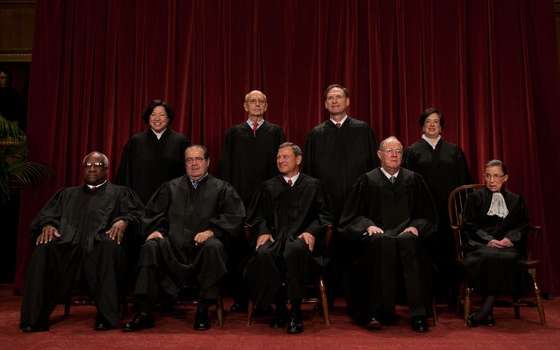- MENU
- HOME
- SEARCH
- WORLD
- MAIN
- AFRICA
- ASIA
- BALKANS
- EUROPE
- LATIN AMERICA
- MIDDLE EAST
- United Kingdom
- United States
- Argentina
- Australia
- Austria
- Benelux
- Brazil
- Canada
- China
- France
- Germany
- Greece
- Hungary
- India
- Indonesia
- Ireland
- Israel
- Italy
- Japan
- Korea
- Mexico
- New Zealand
- Pakistan
- Philippines
- Poland
- Russia
- South Africa
- Spain
- Taiwan
- Turkey
- USA
- BUSINESS
- WEALTH
- STOCKS
- TECH
- HEALTH
- LIFESTYLE
- ENTERTAINMENT
- SPORTS
- RSS
- iHaveNet.com

Will Supreme Court Endow Corporations with a Soul, Too?
by Clarence Page
Private businesses are trying to block Obamacare on religious grounds? What do companies worship besides, perhaps, the almighty dollar?
That's the question at the heart of two conflicting rulings from lower courts that the
Since the law also known as Obamacare was passed, dozens of Christian employers have challenged its birth-control mandate that requires employers to provide health insurance coverage for
Abortion rights opponents believe some of the allowed contraceptive methods block fertilized eggs from implanting in a woman's uterus. That's disputed by other research findings that the methods in question actually work before fertilization occurs.
To placate such objections, the Obama administration has changed the requirement to allow explicitly religious organizations and some other nonprofits to opt out of paying for insurance directly, passing the costs on to their insurance provider instead.
But that doesn't apply to the big for-profit corporations at issue in the two cases that the
In one of them, the
But is a corporation a "person?" Yes, says the 10th Circuit, under the Citizens United decision, which holds that corporations have the same First Amendment rights as individual people to spend money as a form of speech in political campaigns
Not so, says the
That sounds right to me. Even if the corporations qualified as "persons" under the 1993 law, which I am sure would surprise many of those who voted for it, the law cites a "substantial burden" on the exercise of religion.
If any "burden" is imposed on the employers in these cases, it hardly can be called "substantial" any more than the burden government routinely imposes on taxpayers to fund overseas wars or domestic social programs to which they personally object.
But if the high court grants corporations a religious license to pick and choose whichever government rules they want to follow or taxes they want to pay, a substantial burden would be imposed on the ability of the health care law to work -- which would be just fine with some of its critics.
The impact of such a decision would reach far beyond Obamacare. That's why the
Reynolds contended that his bigamy conviction violated his First Amendment rights as a member of the
Because belief "lies solely between man and his God," Jefferson wrote, "the legislative powers of the government reach actions only, and not opinions." In that spirit, the
One hopes not. Government should not intrude on religious faith, but for the sake of the common good, it occasionally must intervene in acts that are motivated by religious belief.
Receive our political analysis by email by subscribing here
AMERICAN POLITICS
WORLD | AFRICA | ASIA | EUROPE | LATIN AMERICA | MIDDLE EAST | UNITED STATES | ECONOMICS | EDUCATION | ENVIRONMENT | FOREIGN POLICY | POLITICS
Article: Copyright ©, Tribune Content Agency.
Will Supreme Court Endow Corporations with a Soul, Too?